Flower Facts, How to
The Language of Flowers: A Guide to Flower Meanings in Australian Culture
Flowers have long been a universal language, conveying emotions and messages that words sometimes cannot. The practice of floriography, or the language of flowers, dates back centuries and remains a significant part of many cultures, including Australia’s. This guide explores the meanings and symbolism of various flowers in Australian culture, helping you choose the perfect blooms for any occasion.
Keys take away:
- Brief history of the language of flowers (floriography)
- Importance of flowers in Australian culture
- Purpose of the guide: helping you to understand the meanings and symbolism of various flowers
The History and Significance of Floriography
The origins of the language of flowers can be traced back to ancient civilizations, where flowers were used in religious rituals and as symbols in art and literature. Over time, different cultures developed their own interpretations of flower meanings. In Australia, flowers have played a vital role in traditions and celebrations, from Indigenous customs to modern festivities.
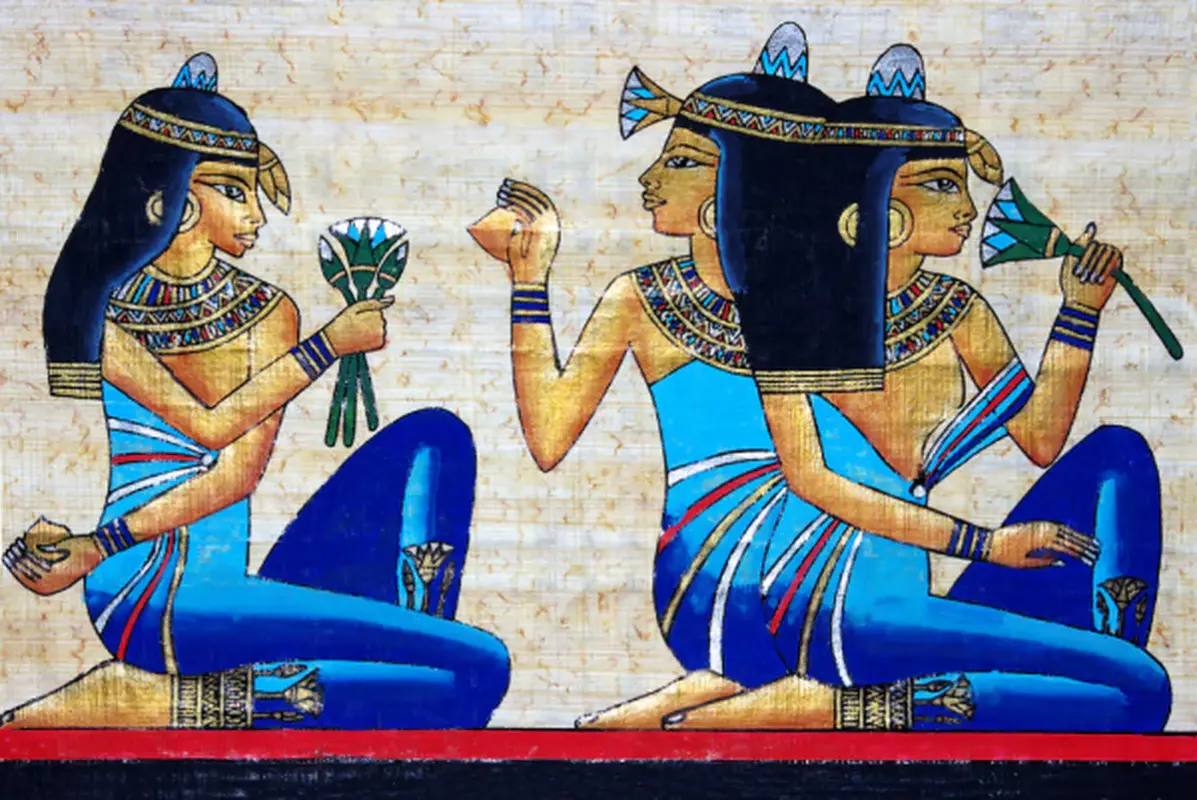
Ancient Beginnings
Floriography has roots in ancient Egypt, Greece, and China, where flowers were used to convey messages and represent deities. The practice gained prominence during the Victorian era in England, where strict social codes limited direct communication. People turned to flowers to express their feelings discreetly, giving rise to a complex system of flower meanings.
The Victorian Influence
The Victorian era significantly shaped the language of flowers as we know it today. During this period, floriography books were published, detailing the meanings of various flowers and how they could be combined to create messages. This tradition spread to Australia, where settlers adapted these meanings to include native flora.
Australian Adaptations
In Australia, the language of flowers evolved to incorporate native species with their unique symbolism. Indigenous Australians had long used flowers and plants in their rituals and storytelling, attributing spiritual and practical meanings to them. This rich cultural heritage blended with European traditions to create a distinctive Australian floriography.
Popular Flowers and Their Meanings in Australian Culture
Australia’s diverse flora offers a wide range of flowers, each with its own unique symbolism. Understanding these meanings can help you choose the right flowers for any occasion.
Roses
Roses are perhaps the most universally recognized flowers in the language of flowers. Each color of rose carries its own specific meaning, making them versatile for various occasions.
- Red Roses: Symbolize love and passion. They are a classic choice for romantic occasions, representing deep affection and desire.
- White Roses: Represent purity and innocence. These are often chosen for weddings and christenings, symbolizing new beginnings and spiritual love.
- Yellow Roses: Convey friendship and joy. They are perfect for brightening someone’s day and celebrating happy moments, symbolizing platonic love and happiness.
- Pink Roses: Express gratitude and admiration. They are often given as a sign of appreciation and are suitable for many celebratory events.
- Orange Roses: Indicate enthusiasm and excitement. These vibrant flowers are ideal for congratulating someone on their achievements.
Wattle
As the national flower of Australia, wattle (Acacia) holds a special place in the hearts of Australians. Its bright yellow blooms are not only visually stunning but also rich in symbolism.
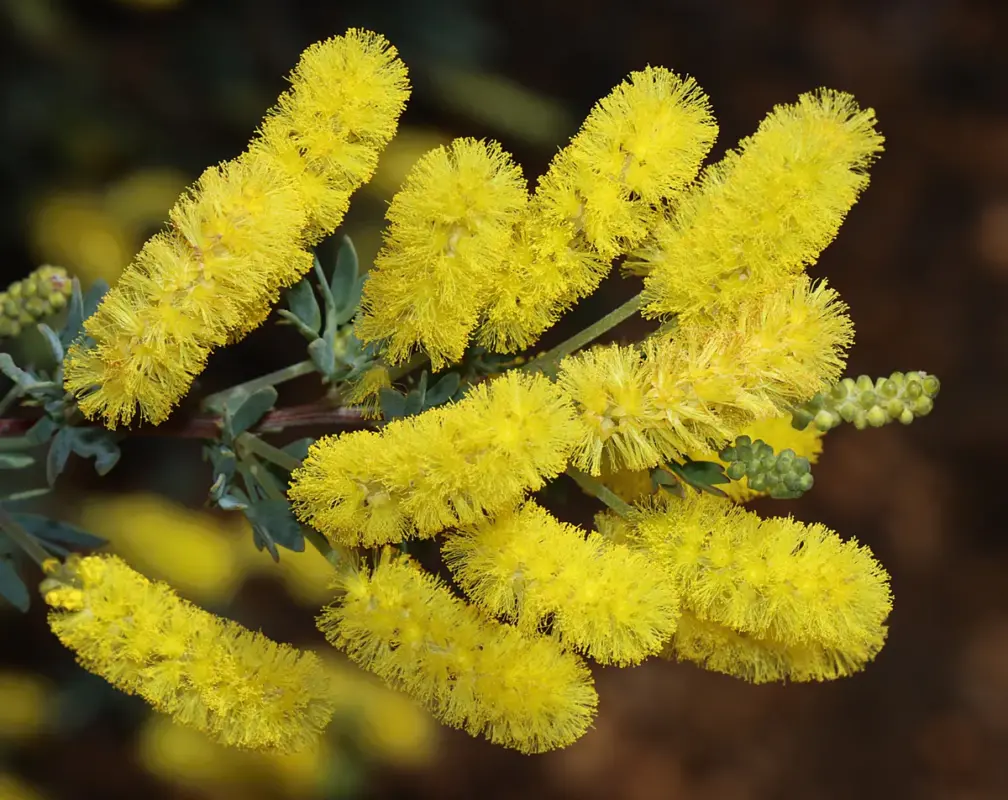
- Resilience: Wattle is known for its hardiness and ability to thrive in harsh conditions, symbolizing resilience and endurance.
- Unity: The wattle’s widespread presence across Australia represents unity and national pride.
- Remembrance: Wattle is also associated with remembrance and is often used in ceremonies to honor those who have served the country.
Waratah
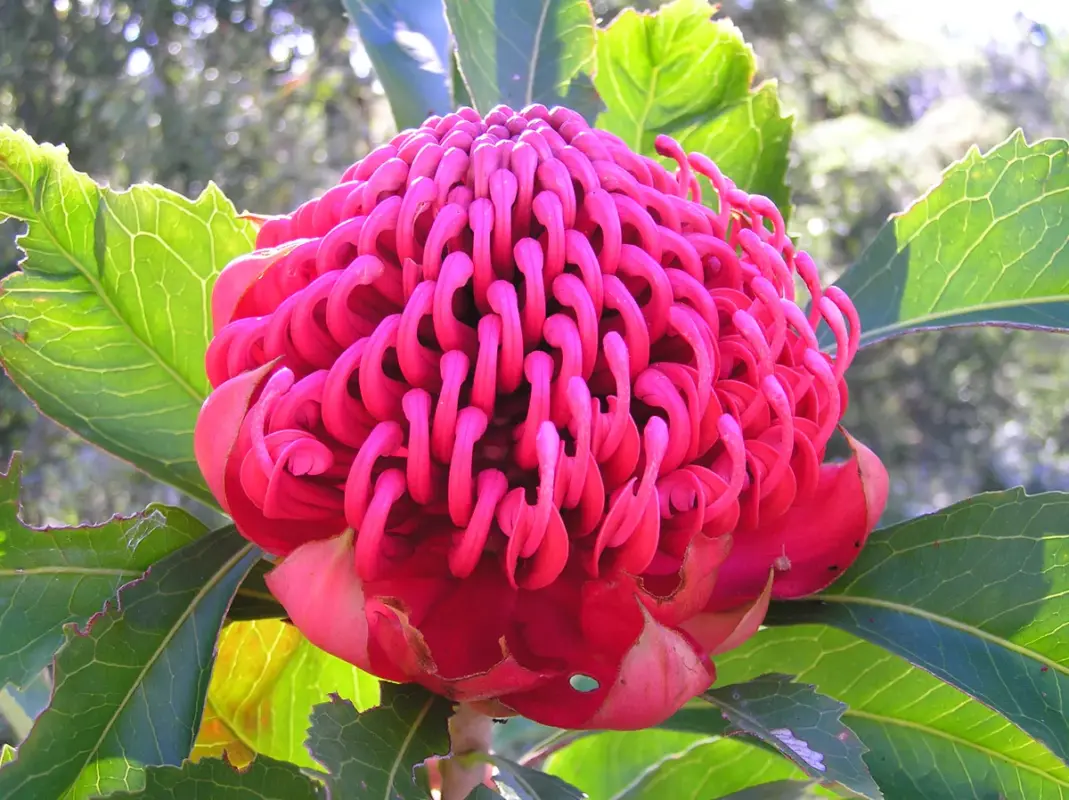
The waratah is an iconic Australian flower, especially significant in Aboriginal culture. Its striking red flowers and unique shape make it a symbol of strength and beauty.
- Strength: The waratah’s bold and sturdy appearance symbolizes strength and courage, making it a powerful emblem in various contexts.
- Beauty: Its vibrant red petals are a testament to natural beauty, often celebrated in art and literature.
- Cultural Significance: For Aboriginal Australians, the waratah holds deep cultural and spiritual meaning, often featured in Dreamtime stories and traditional ceremonies.
Banksia
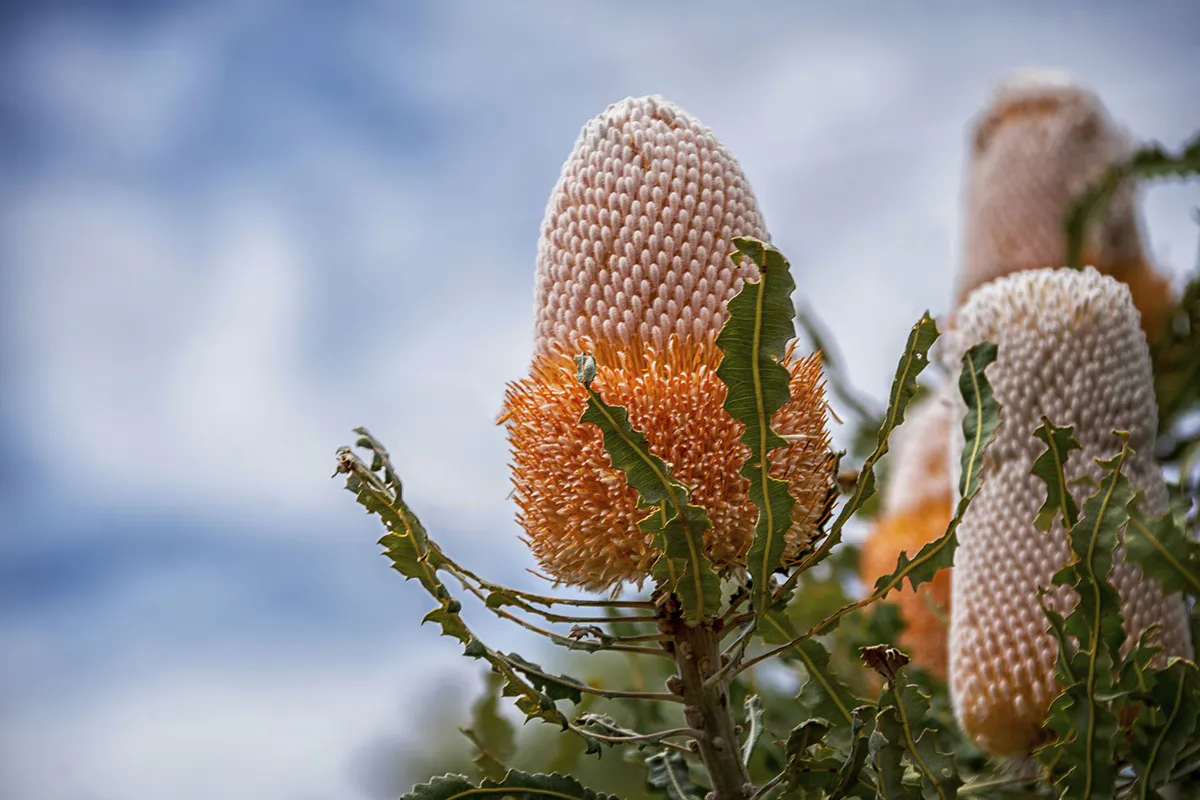
Banksias are uniquely Australian, with their distinctive cone-shaped flowers and strong connection to the bushland.
- Endurance: Banksias are known for their ability to survive and regenerate after bushfires, symbolizing endurance and rebirth.
- Rebirth: The resilience of banksias in regenerating after fire represents renewal and new beginnings.
- Connection to Land: Banksias are deeply connected to the Australian landscape, embodying the spirit of the country’s natural environment.
Other Notable Flowers
- Protea: Symbolizes change and transformation, reflecting its diverse forms and colors.
- Kangaroo Paw: Represents uniqueness and individuality, with its unusual shape and vibrant colors.
- Eucalyptus: Known for its medicinal properties, eucalyptus symbolizes healing and protection.
How to Choose the Right Flowers for Different Occasions
Choosing the right flowers involves understanding the meanings behind them and how they align with the occasion you’re celebrating or commemorating.
Weddings
Weddings are one of the most significant events in a person’s life, and flowers play a crucial role in setting the tone and conveying emotions.
- Traditional Choices: Roses, lilies, and orchids are popular choices for wedding bouquets and decorations. Each of these flowers carries meanings of love, purity, and elegance, making them ideal for such a momentous occasion.
- Native Australian Flowers: Incorporating native flowers like wattle, waratah, and banksia can add a unique touch to wedding arrangements. These flowers not only symbolize important values but also highlight the beauty of Australian flora.
Funerals and Memorials
Flowers are a traditional way to express condolences and honor the memory of loved ones who have passed away.
- Lilies: Often associated with funerals, lilies symbolize the restored innocence of the soul of the deceased.
- Chrysanthemums: In many cultures, chrysanthemums are used in funeral arrangements as they symbolize death and mourning.
- White Roses: Representing purity and remembrance, white roses are a fitting tribute in funeral settings.
See our collection for funeral flower.
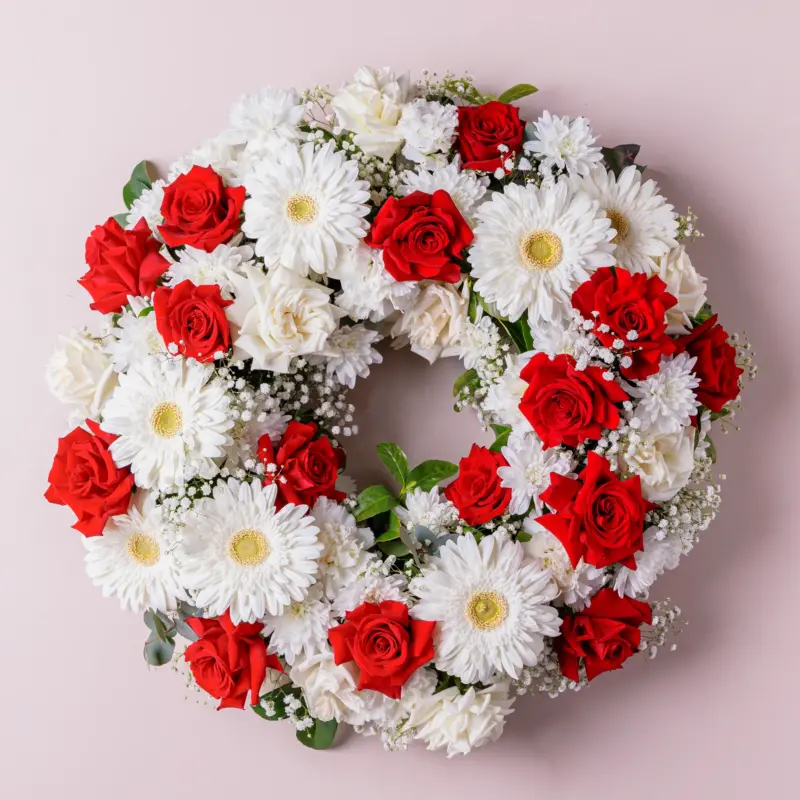
Celebrations and Festivities
Whether it’s a birthday, anniversary, or another special occasion, flowers can enhance the celebratory atmosphere and convey your best wishes.
- Sunflowers: Symbolize happiness, positivity, and admiration. Their bright and cheerful appearance makes them perfect for joyful celebrations.
- Daisies: Represent innocence and purity. They are a great choice for birthdays and other light-hearted events.
- Gerberas: Known for their vibrant colors and cheerful appearance, gerberas symbolize joy and cheerfulness, making them ideal for any festive occasion.
Tips for Creating Meaningful Flower Arrangements
Creating flower arrangements that convey specific messages involves a thoughtful selection of flowers and an understanding of their meanings.
Combining Flowers with Complementary Meanings
When creating a flower arrangement, consider combining flowers that have complementary meanings. For example, pairing red roses with white lilies can symbolize a harmonious blend of love and purity. Adding a touch of greenery like eucalyptus can enhance the arrangement’s overall meaning by symbolizing healing and protection.
Incorporating Native Australian Flowers
Using native Australian flowers in your arrangements not only adds a local touch but also supports sustainability. Flowers like wattle, waratah, and banksia bring a unique aesthetic and cultural significance to any arrangement.
Seasonal Considerations
Choosing flowers that are in season ensures freshness and availability. It also aligns with sustainable practices, as seasonal flowers have a lower environmental impact. Research the blooming seasons of various flowers to select the best options for your arrangements.
Balancing Colors and Textures
A well-balanced flower arrangement should have a harmonious mix of colors and textures. Use a color wheel to select complementary or contrasting colors that enhance the visual appeal. Combining different textures, such as soft petals and sturdy stems, adds depth and interest to the arrangement.
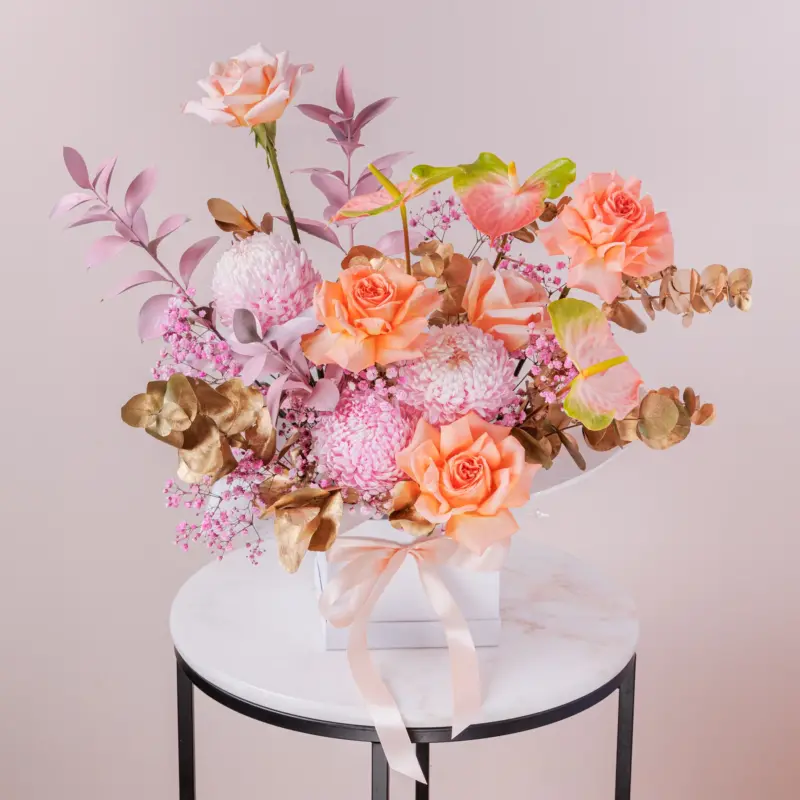
The Future of Flower Symbolism in Australia
As trends change, so do the preferences for flowers. There is a growing emphasis on sustainability and eco-conscious choices, with more Australians opting for locally grown and seasonal flowers. The language of flowers continues to evolve, blending traditional meanings with modern interpretations.
Changing Trends in Flower Preferences
In recent years, there has been a shift towards using more native Australian flowers in arrangements. This trend reflects a growing appreciation for the country’s unique flora and a desire to support local growers. Flowers like wattle, waratah, and banksia are becoming increasingly popular in both personal and commercial settings.
The Impact of Sustainability
Sustainability is a major consideration for many Australians when choosing flowers. Opting for locally grown and seasonal flowers reduces the carbon footprint associated with importing blooms. Additionally, there is a growing interest in using biodegradable and eco-friendly materials for flower arrangements.
Modern Interpretations of Flower Symbolism
While traditional flower meanings remain relevant, modern interpretations are also emerging. Today, people may choose flowers based on personal significance or aesthetic preferences rather than strict adherence to traditional meanings. This flexibility allows for more creative and personalized flower arrangements.
Conclusion
Understanding the language of flowers can enrich your life and deepen your connections with others. By choosing flowers with meaningful symbolism, you can express emotions and celebrate special moments in a unique and thoughtful way. Embrace the beauty and power of flowers to convey your heartfelt messages, and let the rich tradition of floriography inspire your floral choices.

